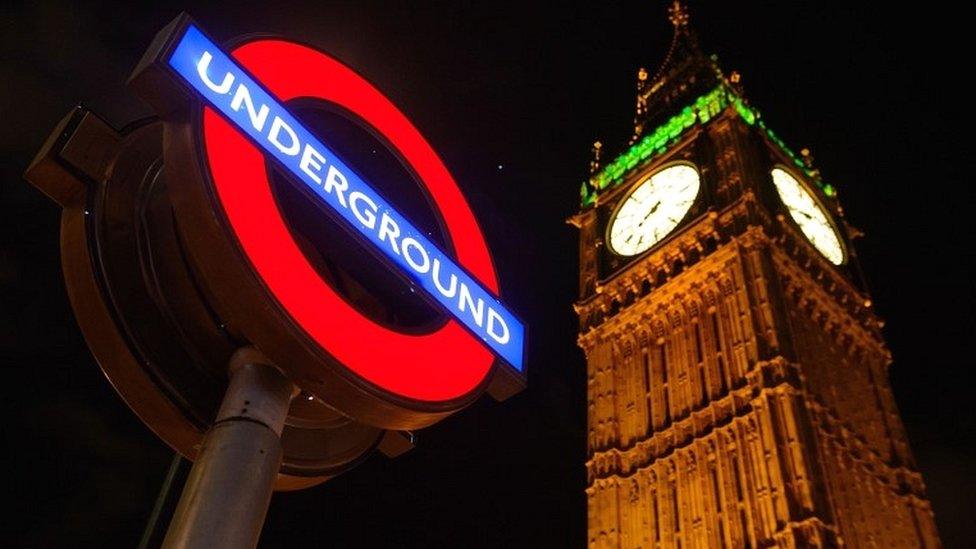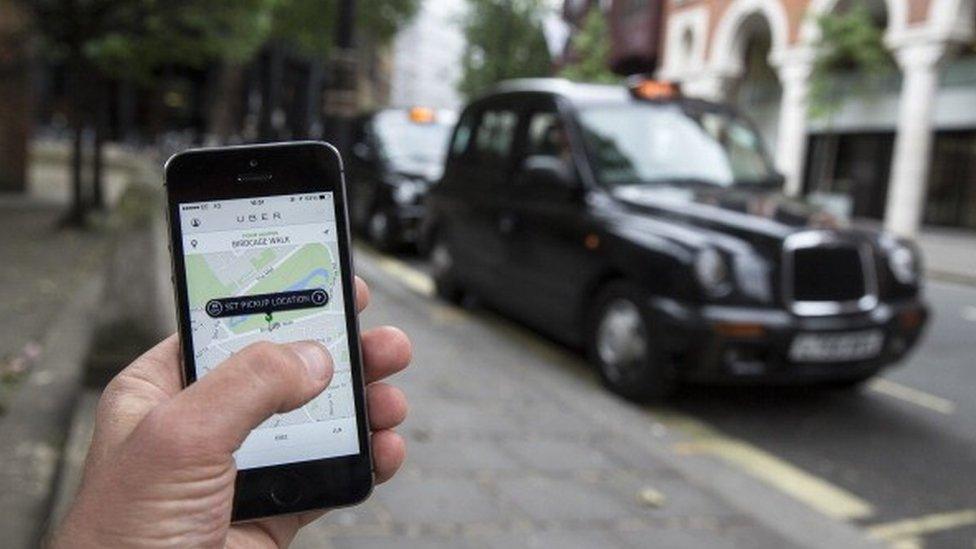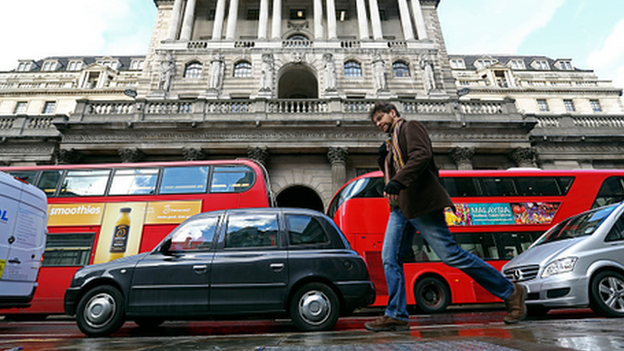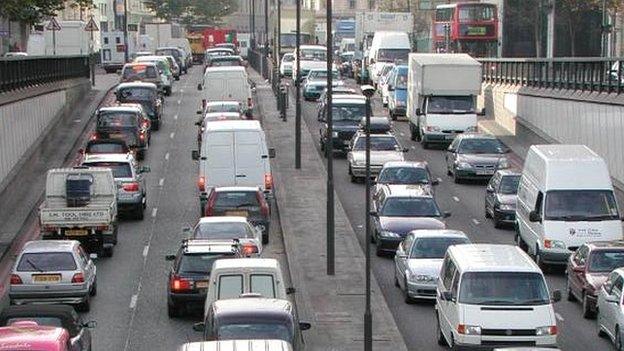Cuts to the London transport grant to hit from 2018
- Published
- comments

TfL will lose general grants from the government for day-to-day running of services
The dark clouds have been on the horizon for some time.
Transport for London, external (TfL) had been told in 2013 it would eventually have to be self-sufficient with its operating costs.
Today it was told by when.
There will be no more general grants from the government for day-to-day running of services from 2018 - earlier than TfL thought.
That grant currently stands at £591m a year but it will be tapered down.
How it deals with it isn't clear yet, but TfL will undoubtedly have to be more commercial.
It is currently planning to raise £3.4bn by 2020/21 through property, advertising and similar routes.
And it will have to be more efficient; it is currently planning to cut £16bn by 2020/21. That could affect the number of staff.
There will also probably have to be some choices on infrastructure investment in terms of priorities.
What it means is by 2018 London will be the only city in Europe where there is no day-to-day transport subsidy.
'Purse strings tighter'
That bad news is tempered with some good news for transport bosses.
Previously a £10bn investment had been announced in the run-up to the election until 2019/20.
Today it has been increased to £11bn, covering another year. It breaks down as follows:
£5.8bn investment grant (infrastructure)
£1.4bn general grant (day-to-day)
£3.8bn borrowing
So investment in the big ticket infrastructure items such as the Tube upgrades look like they're OK.
But the purse strings just got a little bit tighter at TfL. Some will say this shows TfL is more than capable of looking after itself and this is a vote of confidence.
Others will say it leaves a big hole in TfL's finances that it will now have a big challenge trying to fill.
Whatever way you dress it up, it is still a big cut to transport funding in London.
- Published24 November 2015
- Published2 October 2015

- Published13 November 2015
- Published25 August 2015

- Published29 April 2015
